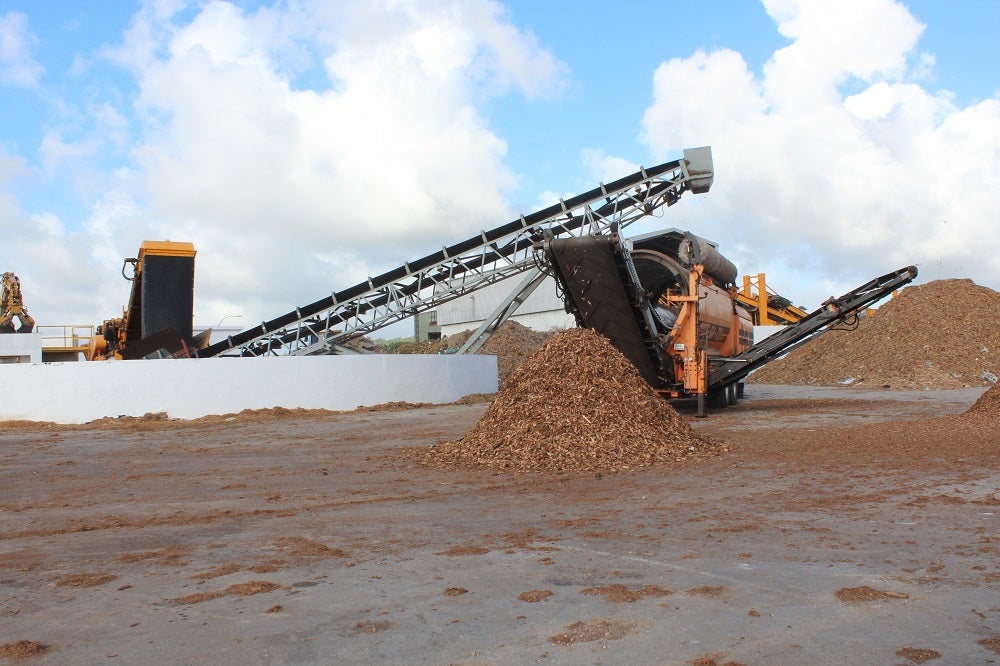The operations team of the Barbados Country Office of the Inter-American Development Bank decided to do something differently last month. Instead of its weekly operations meeting inside the comfortable air-conditioned Country Office conference room, the team ventured out on a mission to the Solid Waste Project Unit of the Ministry of Environment and Drainage, the Sustainable Barbados Recycling Centre (SBRC) and B’s Recycling Barbados (BRB). Our visit was facilitated by experts from the Solid Waste Project Unit as well as tour guides from the two enterprises.
Our first stop was at the Solid Waste Project Unit where we heard about the Integrated Solid Waste Management Program (ISWMP), which has its genesis in the early 1990s. Through this program, Barbados has maintained its landfilling at approximately 300 tons of municipal solid waste – that is household waste – per day since 1994. This is remarkable, especially against the backdrop of higher waste generation: waste generation increased from around 300 tons per day in 1994 to approximately 1, 000 tons in 2015. The implementation of the ISWMP has been premised on a waste management hierarchy underpinned by four R’s: reduce, reuse, recycle and recover (See Figure 1).

Figure 1: Waste Management Hierarchy
It is at the recycling stage that private sector enterprises, such as Sustainable Barbados Recycling Centre and B’s Recycling Barbados, have partnered with the Government in keeping the landfilling rate constant. They have understood the economic value and foreign exchange earning capacity of waste and have sought to maximize on these. As such, private sector enterprises in Barbados collect and process recyclable materials for export to countries abroad including Trinidad and Tobago, China and the United States of America.
The Sustainable Barbados Recycling Centre is integral to waste management in Barbados. Every day, approximately 1,000 tons (or 500 truckloads) of waste is dropped off at SBRC. However, through recovery of recyclable materials, 70 percent of this waste is diverted from the Mangrove Pond Landfill. Diverted waste includes leaves, grass, and coconut husk that are used to create mulches; tree clippings and wood used to make wood chips; soils to use as top-soils in gardens; and rocks to be used in land reclamation projects. Nonetheless, there is scope for further diversion. Recovering recyclables from municipal solid waste is very problematic, yet municipal solid waste provides an avenue to increase waste efficiency. Separating recyclable products at source –that is in the household –is a simple way to reduce the burden on the landfill. The more households that are involved at this level, the longer the life of the landfill. Bottles, cardboards and other paper products, scrap metal and electronic devices can be separated and recycled. Some businesses are even willing to collect the recyclables from households and to reimburse householders for their efforts.
One such business is B’s Recycling Barbados. The company has grown from recycling plastic bottles to a wide range of materials. Glass bottles are washed and returned to drink manufacturers for reuse; plastic bottle caps are however chipped up and sent to China for use as raw materials in the manufacture of cellular phones, car parts and even some types of clothing. Vehicle batteries are exported to China and Japan and even discarded vehicles have an economic value. Cardboard boxes and shredded paper are exported to make additional paper with the added benefit of preserving trees. Glass is ground and exported to Trinidad and Tobago to use in the production of new glass. B’s Recycling Barbados is seeking to increase further its capacity through constructing a new plant in a more spacious location.
We can all join hands with these companies to reduce the amount of waste going into our landfill. They have done a remarkable job so far in keeping the landfilling rate constant for over two decades even though waste generation has increased some 233 percent. However, the average person, schools, businesses and community groups can do more to reduce waste and preserve the environment while also earning a little extra cash.
Follow us on Twitter: @IDB_CarDevTrend


Leave a Reply